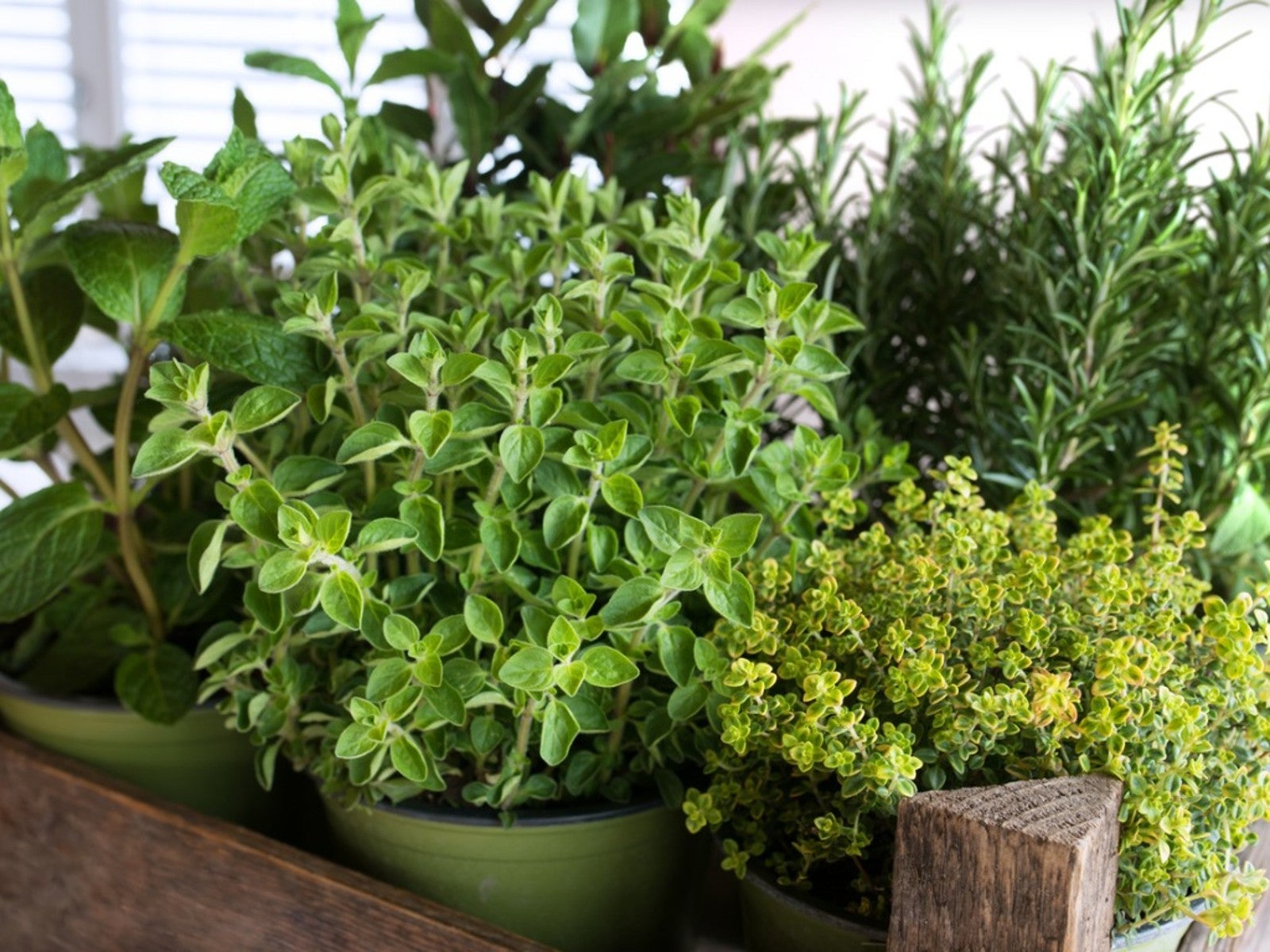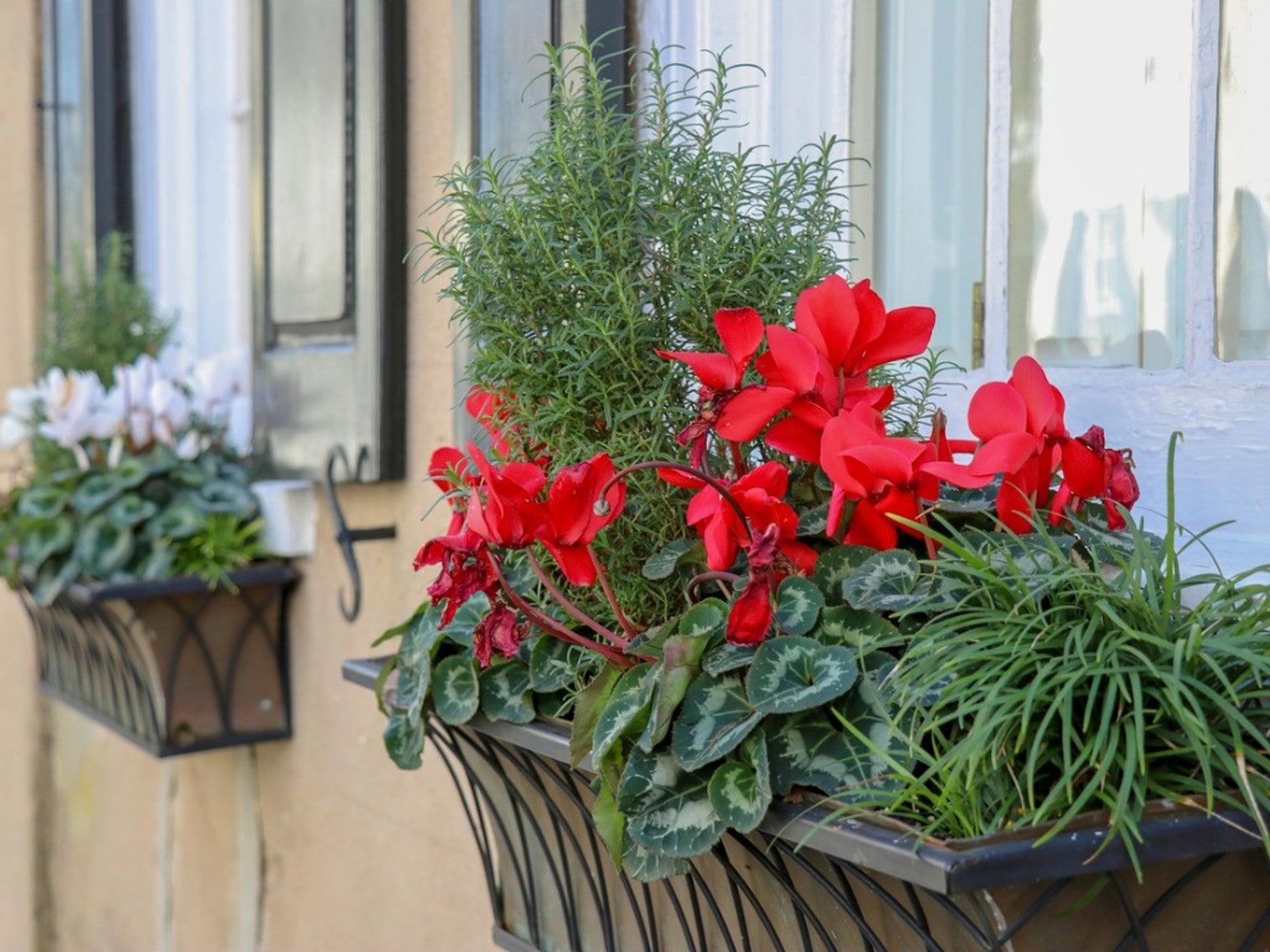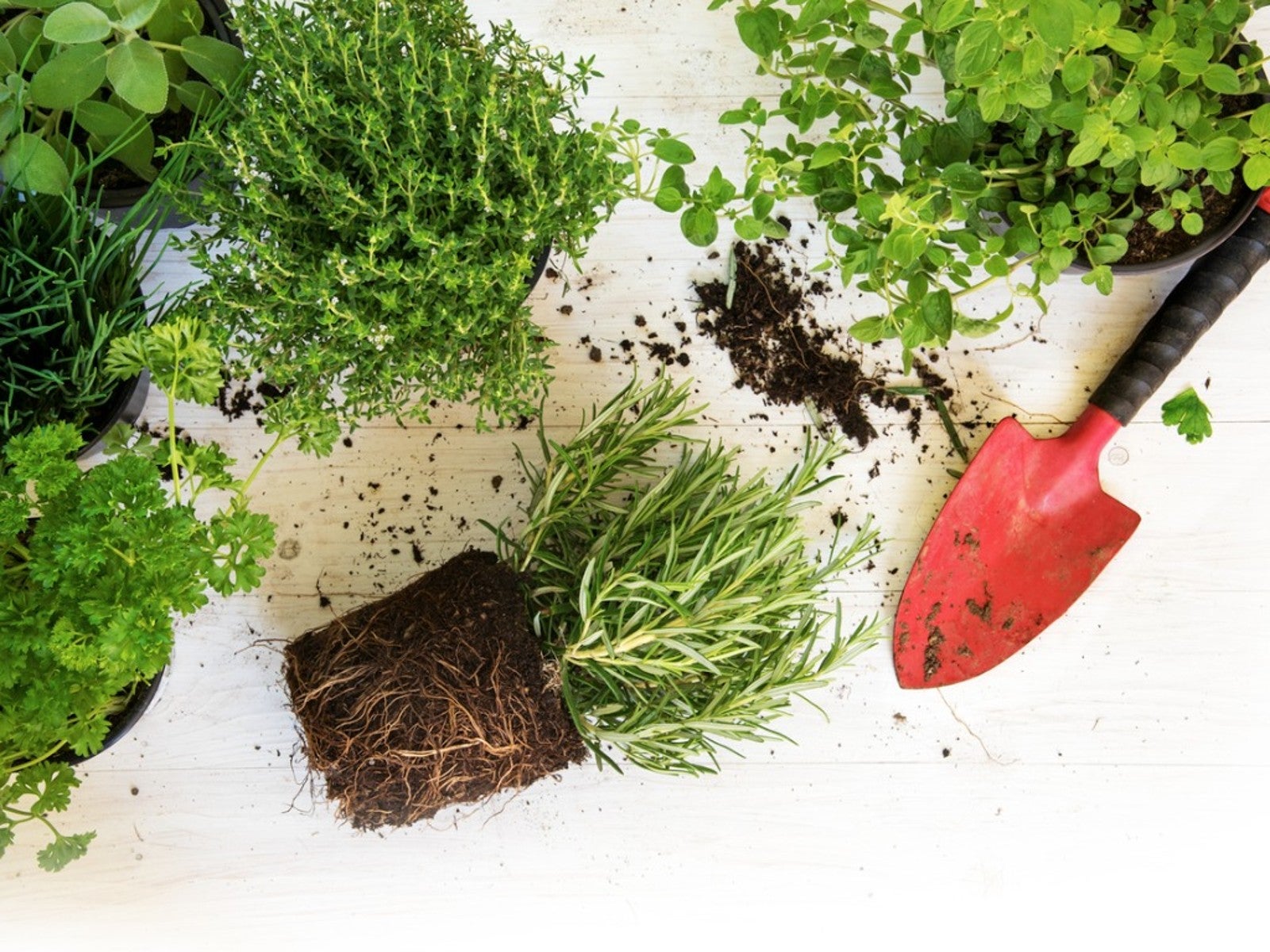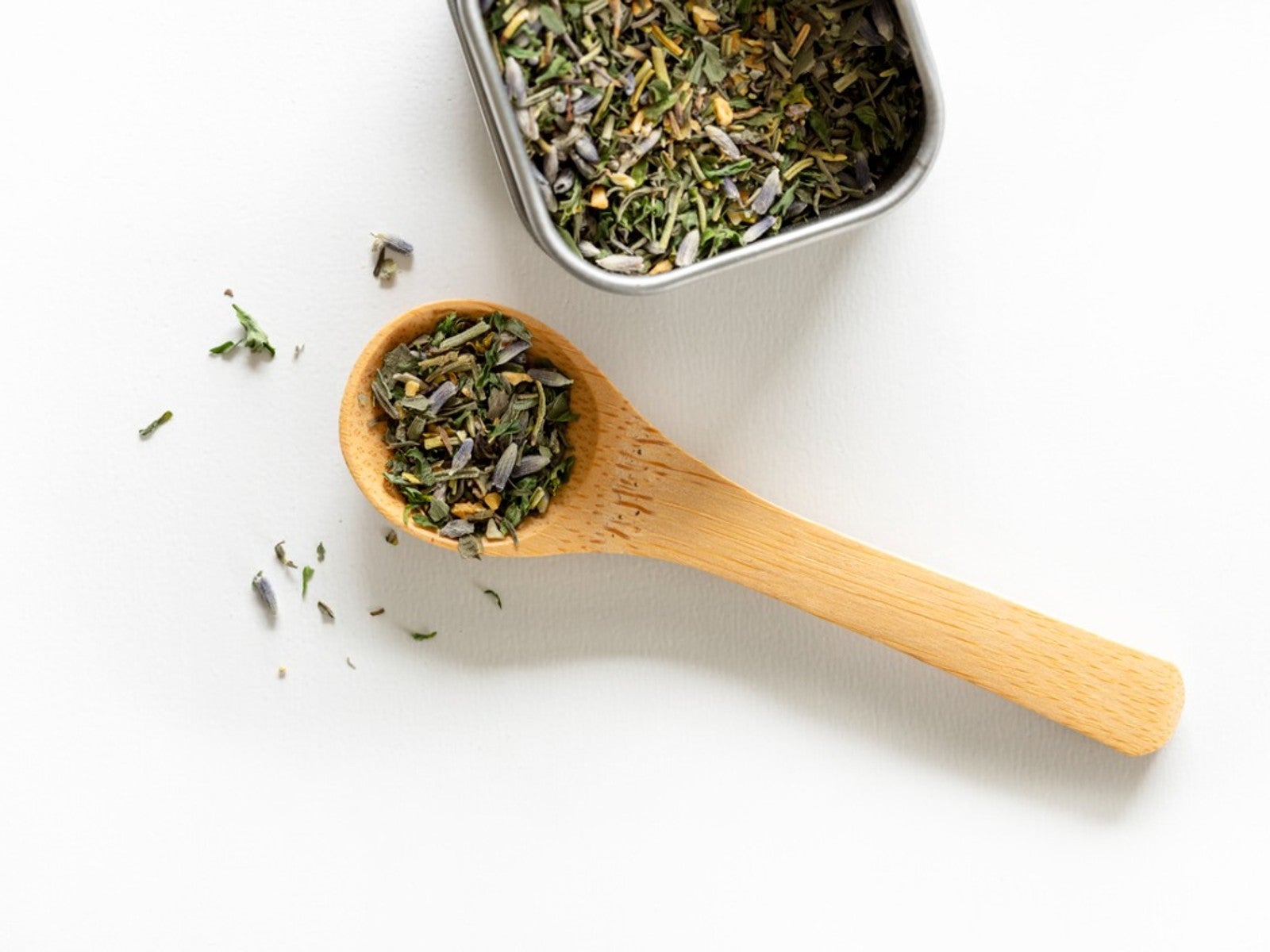Pruning Woody Herbs – Is Cutting Back Woody Herbs Necessary

Woody herb plants such as rosemary, lavender, or thyme are perennials that, given proper growing conditions, can take over an area; that’s when cutting back woody herbs becomes a necessity. Plus, pruning woody herbs signals the plant to send out new shoots and gives the plant an overall boost and a necessary haircut. Read on to learn how to prune woody herbs.
About Woody Herb Pruning
As they say, there is a time and place for everything, and woody herb pruning is no exception. The best time to prune woody herbs is the spring once new growth can be seen at the base of the plant. A second chance to prune will be when the plant is done flowering.
Never prune woody herb plants late in the season. Pruning will just encourage new growth at the same time the plant wants to become dormant. Tender new leaves will be killed by cold winter temps, and the resulting stress will weaken or may even kill the herb.
Another thing about woody herb pruning is that if it hasn’t been done in a while and the plant has grown large, it will be nearly impossible to get it trimmed into a tidy bushy plant. Why? Woody stems do not re-sprout new growth, so if you chop it back to the wood you will end up with stubs and no foliage.
Cutting back woody herbs should become part of your annual yard maintenance both to control the size and shape of the plant and to get it to produce more foliage.
How to Prune Woody Herbs
In the spring, wait until you see new growth appearing at the base of the plant or coming from the lower stems before cutting back. Only cut a third of the plant back when pruning woody herbs. Any more could be disastrous. Remove the spent flowers and one third of the branch. Make your cut right at a set of leaves.
During the summer, the little bit of cutting you do when taking a stem or two for use will be enough to keep the herbs in shape, and can be done at your discretion.
Gardening tips, videos, info and more delivered right to your inbox!
Sign up for the Gardening Know How newsletter today and receive a free copy of our e-book "How to Grow Delicious Tomatoes".

Amy Grant has been gardening for 30 years and writing for 15. A professional chef and caterer, Amy's area of expertise is culinary gardening.
-
 Looking For Plants To Give You The Soft And Fuzzies? Try These 5 Fuzzy Leaf Plant Options
Looking For Plants To Give You The Soft And Fuzzies? Try These 5 Fuzzy Leaf Plant OptionsLovers of texture, drama, silver foliage and tactile plants will adore these special sensory garden additions. These fuzzy leaf plant options will leave you all aglow
By Susan Albert
-
 Get Ready For A Summer Of Hummers! Grow These Full Sun Hummingbird Plants and Flowers
Get Ready For A Summer Of Hummers! Grow These Full Sun Hummingbird Plants and FlowersIf you’re lucky enough to enjoy a sunny backyard, make sure you are maxing out on your pollinator opportunities and grow these full sun hummingbird plants and flowers
By Tonya Barnett
-
 Grow Tasty Herbs For Roast Turkey In Your Garden
Grow Tasty Herbs For Roast Turkey In Your GardenCan you season your turkey with herbs you grow in your own garden? Yes! Click to learn more.
By Amy Grant
-
 10 Easy Herbs For Beginners
10 Easy Herbs For BeginnersIf you’re new to herb growing, there are some perfect beginner herbs that are low maintenance and easy. Here are our top ten.
By Mary Ellen Ellis
-
 How To Make A Rain Gutter Herb Garden
How To Make A Rain Gutter Herb GardenOne really fun look outside the box is a hanging rain gutter herb garden. A gutter planter is a unique way to house and showcase plants.
By Bonnie L. Grant
-
 Grow A Beautiful, Edible Herb Window Box
Grow A Beautiful, Edible Herb Window BoxGrowing herbs in window boxes is a space-saving method for producing culinary ingredients for kitchen use. Click for more.
By Laura Miller
-
 Best Herbs To Direct Sow Vs. Start Indoors
Best Herbs To Direct Sow Vs. Start IndoorsKnowing when to buy herb plants or start them from seeds or cuttings is essential to your success. Read on to learn more.
By Laura Miller
-
 Learn About The Highly Prized Silphium Herb
Learn About The Highly Prized Silphium HerbWhat if there was a perfect plant? In ancient times such a treasure existed. It was the silphium plant.
By Laura Miller
-
 Grow Healing Herbs Indoors: Combat Winter Illness With A Medicinal Garden
Grow Healing Herbs Indoors: Combat Winter Illness With A Medicinal GardenIf you are growing medicinal plants at home, did you know you also can grow an indoor medicinal herb garden? Read on for more.
By Susan Albert
-
 Grow Your Own Herbes De Provence - How To Grow, Dry, And Store Herbs
Grow Your Own Herbes De Provence - How To Grow, Dry, And Store HerbsHomemade gifts can add that special touch to any occasion, such as a jar of herbes de provence. Click here to learn how to grow and make your own for gifting.
By Laura Miller